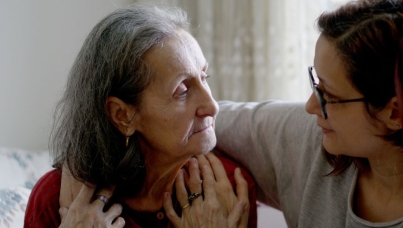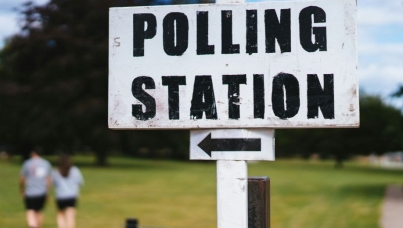The Real Meldrews
A new analysis, produced by the MORI Social Research Institute for the Today programme on Radio 4, highlights a new phenomenon of a particularly frustrated and discontented section of society. But it isn't the young, nor is it the elderly like Victor Meldrew.
Instead it is the 35-54 age group who stand out as unique in society as least positive about the government, the future of our public services and the way both Tony Blair and Ian Duncan Smith are doing their jobs.
- They are least likely to believe education will improve in future (10% more think it will get better rather than worse, compared to 18% among the under 34s and 19% among the over 55s).
- On the NHS only 5% more think it will improve rather than deteriorate over the next few years, compared to 26% among the over 55s and 14% among the under 34s.
- On public transport they are similarly more negative
They are not necessarily the most vulnerable or excluded, but they are the most fed up -- and the government may well need to pay more attention to them. When one looks at their broader social attitudes, they are markedly different from the rest of the population on several key measures. Some of this may reflect the rather different climate that this generation came of age in, particularly the 45-54s who were part of the late 60s/early 70s generation living through the major social upheaval and Vietnam.
What ever the reason, compared to both younger and older people this age group are the least deferent in society -- least likely to agree that the "people in charge know best":
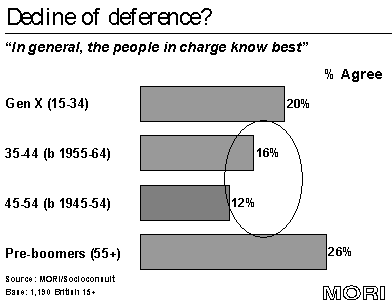
They are most likely to see strikes and demonstrations as "signs of a healthy social system" ...
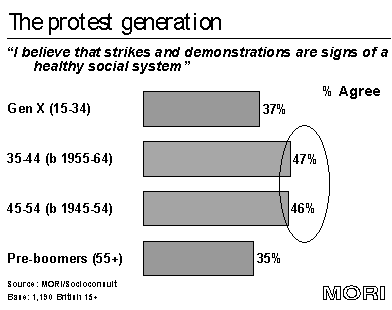
Other manifestations of their difference from older and younger people are their rejection of material success and brands -- not only are they least interested in brands of all age groups -- more so than the older "grey panthers", but they are most fed up with the rat race. Of all age groups they have the deepest concern about the work-life balance, with the majority resenting overtime -- even if they get paid for it.
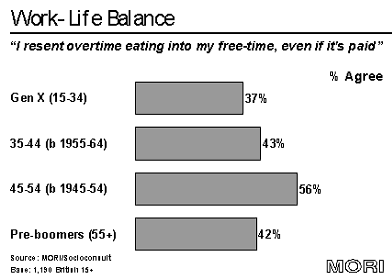
Fewer also seek fulfillment from success at work than any other generation.
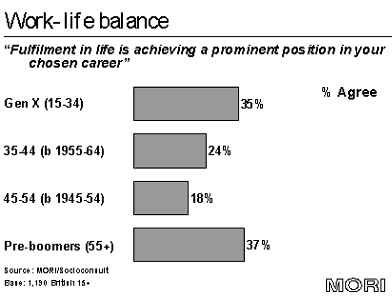
Why are they so fed up compared to the over 55s, who have been type- cast by Victor Meldrew?
There are a number of possible factors. Here are some hypotheses. Many of the over 55s have benefited from relatively generous pensions compared to what our Meldrews have to look forward to; their children have grown up and left the nest, they are healthier than their parents were, and where they have non-state pensions, they have historically high disposable incomes, especially as they are most likely to be able to realise assets from increasing property values, and to be inheriting from their parents.
In contrast the 35-54s are of prime working age, in the most over-worked nation in Europe, bearing the brunt of commuting and heavy public transport users. With people leaving children till later in their lives, it is now this generation -- not the 18-34s, who bear the brunt of child rearing. They are very concerned about crime, the NHS and their children's education, and youth provision. While their wages are only rising slowly in percentage terms, housing affordability is becoming more and more of an issue in many areas. They can remember a time when things seemed different and more optimistic.
NOTES:
This analysis was produced for the Today Programme by the MORI Social Research Institute Ben Page, Director of the MORI Social Research Institute, is available for further comment on 020-7347 3242


